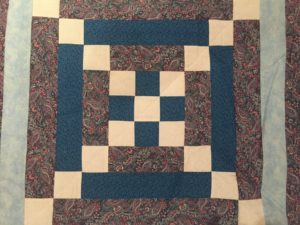October 7th, 2016
Work Mimics Life: A Failed Attempt at Separation
Amanda Breviu, MD
As physicians, we generally attempt to separate our personal lives from our work. Some of this comes from modeling behavior of others during training, some comes with further experiences in coping with the patients we encounter.
I recently had the pleasure of caring for an elderly gentleman who was brought into the hospital by his loving wife and son. He had Parkinson disease, as well as dementia, and his family reported that his memory had declined considerably over the past several months.
I could not help but to be reminded of my own grandma — a fiercely independent and hard-working woman who had suffered her own declining health and memory recently — also as a result of Parkinson disease.
The family of my patient mentioned that, over the past 3 days, he had declined to the point of sleeping all day. When I first saw him, he was fairly somnolent but roused to voice, and he was not oriented to place or time. He referred to the nurse in the Emergency Department as his girlfriend, which his somewhat-embarrassed family members immediately apologized for. I stated that it wasn’t unusual for patients with memory problems to experience further confusion in a new setting.
I thought of my own grandmother, who had been unable to respond to questions without significant delay and effort, who at times could not remember all the names of her children who she dearly loved.
As we interviewed the patient further, he coughed on his own secretions; several minutes passed before he was able to breathe comfortably again. His wife noted that he had been doing that a lot during the past week. He needed oxygen now, although he never had before. I broached the subject of goals of care, knowing from chart review that the patient’s primary doctor had discussed this before. The grave expressions on the family’s faces conveyed their understanding of the severity of the situation. They looked at me expectantly. “Doctor, please tell us the truth about what’s happening.” The reality of the story — what his family members shared — was that he was in a stage of dying. Over the past several weeks, he had not been getting out of bed. He had not been eating or drinking, and he was losing weight. He could no longer safely swallow and was aspirating his own saliva.
I had recently watched my grandmother in these same stages. First, she could no longer eat bread, because she could not do so without risk of choking. Later, she could not go long without coughing on her own saliva.
The patient’s wife understood clearly when I conveyed his poor prognosis. She and her son did not hesitate when I discussed care options for their loved one; they immediately stated that they wished for him to be comfortable and not to undergo aggressive measures such as a feeding tube. His wife commented that “his life has not been living.”
Again, I thought of my grandmother. The gardening and quilting that she enjoyed so much during her life had become a distant memory by the end. My grandfather lovingly had visited her every day in the facility where she received hospice care.
Our patient passed away only a few days after I had met him. My grandmother had also passed away comfortably after receiving hospice care, only a few weeks prior. When I saw him, I saw my grandmother. When I saw his grieving family, my eyes filled with tears.




I believe one the most important quality in a doctor is his humanity. For a good doctor medicine is part of his life so is a impossible to separate life from you work. All your experience and the knowledge you accumulate from life are used every day to treat your patients. If you don’t feel empathy with you patients basically you are a machine with a lot of knowledge. Every time one of my patients died I cry, so what happened to you is normal and for me the sign of a good doctor. Excellent contribution. Regards.